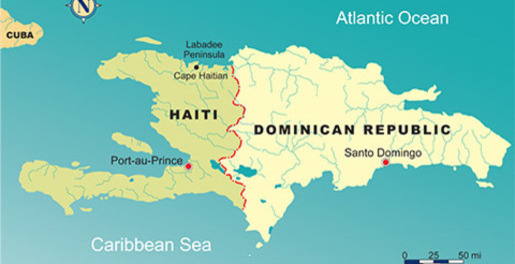News
Haiti border crisis as Dominican Republic deports Dominicans of Haitian descent

The Dominican Republic, last month began implementing a controversial immigration program targeting Haitian migrants and Dominican-born people of Haitian descent.
The program centers on round-ups and deportations that have triggered concerns about a slow-growing border migration crisis in Haiti.
So far about 1,500 people have been deported at a pace of 50 to 100 per day, according to officials with access to records supplied by the Dominican government. The officials asked not to be identified because they were not authorized to discuss the number of deportees.
Thousands more have fled the Dominican Republic out of fear of arrest or harassment, scared by neighbors, bosses, co-workers and police or immigration officials. More than 27 percent of those crossing into Haiti say they were born in the Dominican Republic. But they lack documents to prove residency or citizenship, and many are undocumented immigrants who say they have lived most of their lives on the Dominican side of the border.
The Dominican Republic, which has a population of about 10 million, has long complained of illegal migration of Haitians, even as it benefits from a steady source of cheap labor for construction, agriculture and domestic work. The Dominican government declined repeated requests for comment on its immigration crackdown. But the issue touches a centuries-old xenophobic nerve in the country, stemming from its occupation by Haiti in the early 19th century.
Four informal settlements have sprung up in southern Haiti for people affected by the deportations. They now house between 2,500 and 3,000 people, according to the Jesuit Refugee Service.
The Haitian government began a relocation program at one settlement camp, Tête à l’Eau, last month. But the program, including US$30 in assistance for deportees, was suspended due to a lack of funds, according to Frantz Pierre-Louis, a top regional Haitian government representative.
Human rights officials in Haiti, last week urged the government to establish health facilities and deliver drinking water to the camps.
The migrant crisis stems from a 2013 constitutional change that stripped citizenship away from the Dominican-born children of foreign parents – mostly of Haitian origin. The ruling was applied retroactively to 1929, sparking an international outcry that it would leave thousands stateless. Under a separate law all “migrants” were required to apply for temporary residency by deadline of June 17, or face deportation.
Dominican Republic officials have said 78,000 out of 289,000 applicants for residency were denied. It remains unclear how many of those may face expulsion.

